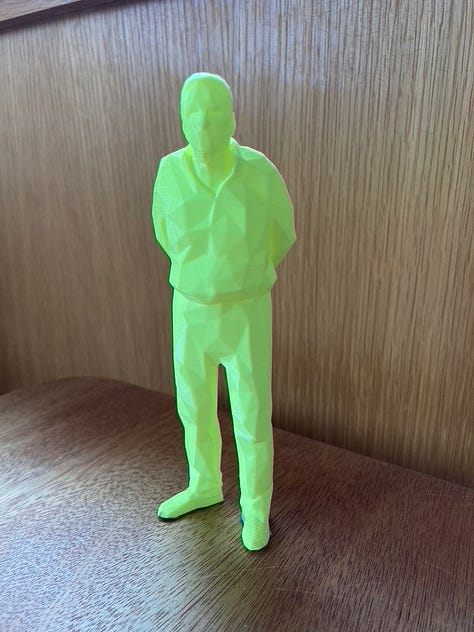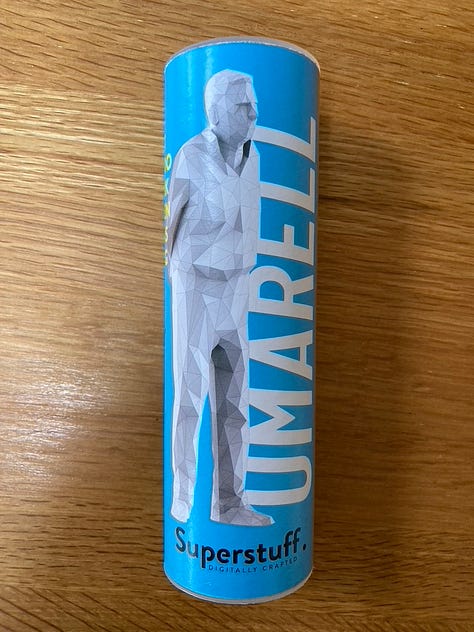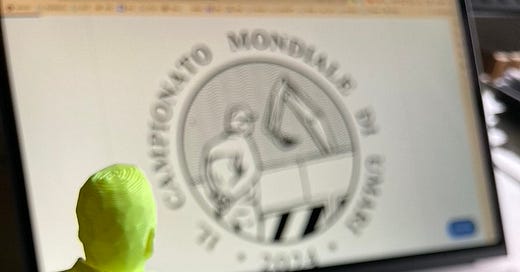Have you noticed how much posthuman and new materialist writing in healthcare focuses today on re-enchanting the natural world?
From studies on forest bathing and the therapeutic value of natural swimming to our mutual enmeshment with leaf litter and the wind, we seem to be living out a romantic fantasy in which healthcare sheds itself of its instrumental, reductive past and embraces instead a nineteenth-century notion of a kind of health-in-Arcadia that would make Walter Scott proud.
Where’s the noise of the heavy lorries, the smell of disinfectant in the public toilets, and the riffling of litter piled in a wind-blown corner of the long-abandoned shopping centre?
My suspicion is that the romance inherent in a lot of new materialist writing is an expression of our deep desire to want humans to be better: to see beauty in the world; to remember with more affection our human and non-human confederates; perhaps to save ourselves. But I have a suspicion this desire — however well-meant — is misguided.
In late 2022 I was on sabbatical and spent a week in Bologna, Italy. While I was there, I saw an exhibition of Giorgio Morandi’s work at the Museo d'Arte Moderna di Bologna. In the museum shop afterwards, I found this 3-D printed figure in a display case.



The figure is of an ‘umarell’: a Northern Italian slang-term for a local, usually a retired man, who stands with his hands behind his back outside the wire fencing at building sites admiring the work.
The 3-D printed figure plays on the idea that someone is always watching;
”The hardest thing to do is to work hard when nobody is watching you.”
“Increase your productivity with your personal umarell. Just place it on your desk and let him watch over you” (Text from the box the umarell figure was sold in).
Although they won’t always be called this, people who are umari are common throughout the world. Umarell simply refers to ‘someone who spends time observing workspaces, typically construction jobsites’ Link. One thing all umari have in common is an appreciation for the material world, especially the world of the building site;
’An umarell’s defining characteristic is that they stand outside the work, looking in at the people doing it. Presumably they admire the work and the workers; Wikipedia suggests that umarells might “stereotypically” offer unwanted advice, but the article cited only quotes one umarell saying “Ottimo lavoro, bravi!” (“excellent work, well done!”). This is my experience as well: I watch a jobsite because I am in awe of it, and because I am impressed by it, and because I desperately want to understand it’ Link.
Now consider this in the context of our new materialist writing in healthcare;
’I feel little partly because of the comparison between the scale of my own body and of the body of the jobsite. But more than its physical scale, the characteristic of a jobsite which I feel little in comparison to is its sense of forward momentum. A jobsite barrels into the future, not so much pushed by the people who work on it as they are pushed by the jobsite itself. Jobsites — places which are nothing if not chaotic, smeared with mud and crawling with heavy equipment, extremities going numb in the winter and garments soaked in sweat in the summer — somehow command us to move mountains, and mountains we do move, piece by minuscule piece’ Link.
One of the things I like about this whole subculture is its inherent humility. The word ‘little’ keeps recurring. Umarell literally translates as ‘little man’, and there’s a sense of insignificance in the scale of the human observer standing at the fringes of the glorious monstrosity being built just beyond the fence line.
It’s a minor philosophy, for sure, but one that applies to a world that is surely as beautiful as any bucolic landscape. And it has the added virtue of being much more tangible than the pastoral romanticism of a lot of health-related materialism.
Fortunately, we can now celebrate our inner umarell and acknowledge those who appreciate the high-rise crane and the hard hat just as much as the wind blowing through the beech forest. The consistently excellent Scope of Work have just launched Il Campionato Mondiale di Umari; the 2024 Umarelling World Championship, in which umari the world over can turn their attention to the world being created within it, and take time to ‘appreciate the materials, machines, and muscles from which it emerges’ Link.
’So go forth into the built environment, and report back on your observations. The work being done all around you is ready to share itself; what will it say to you?’ Link






A beautiful post that really resonated with me today. I feel we forget to step back and watch the beauty that is the world around us until it's too late.